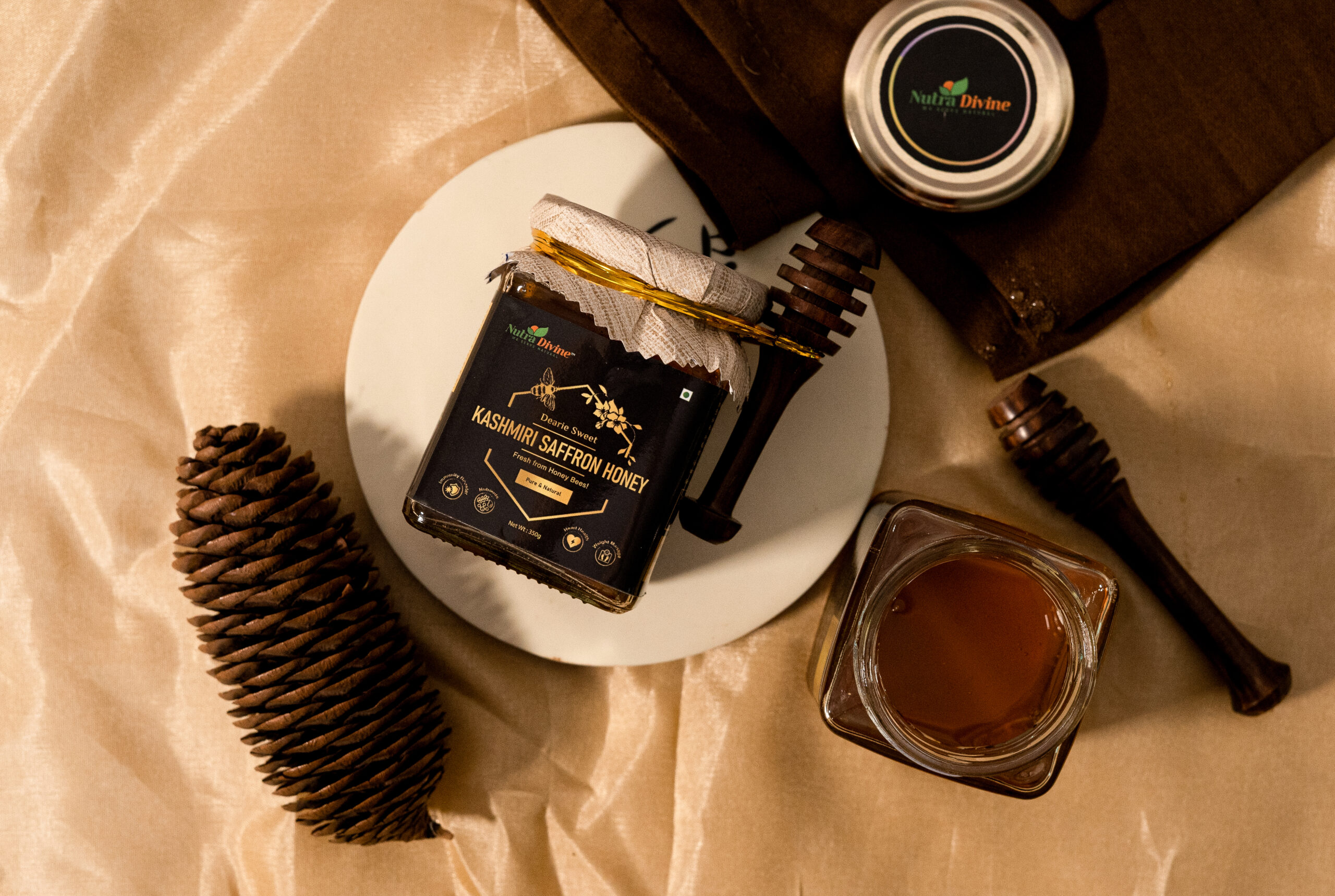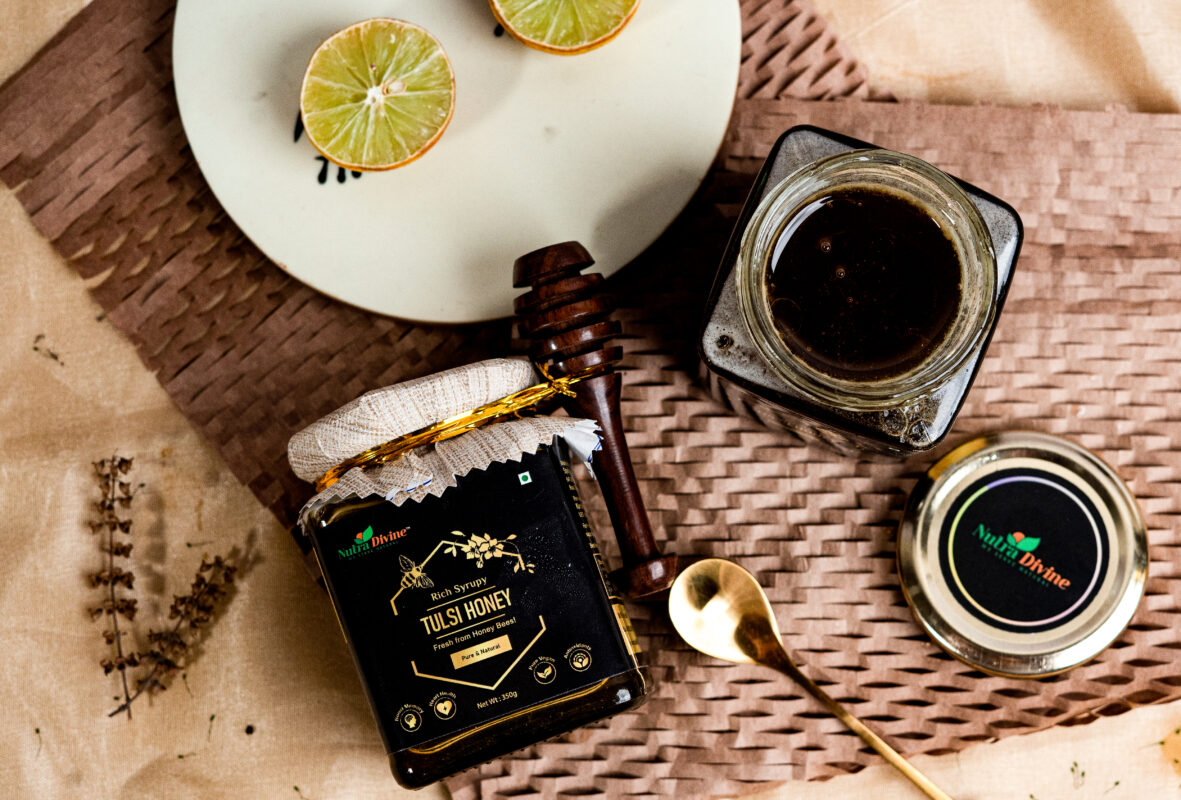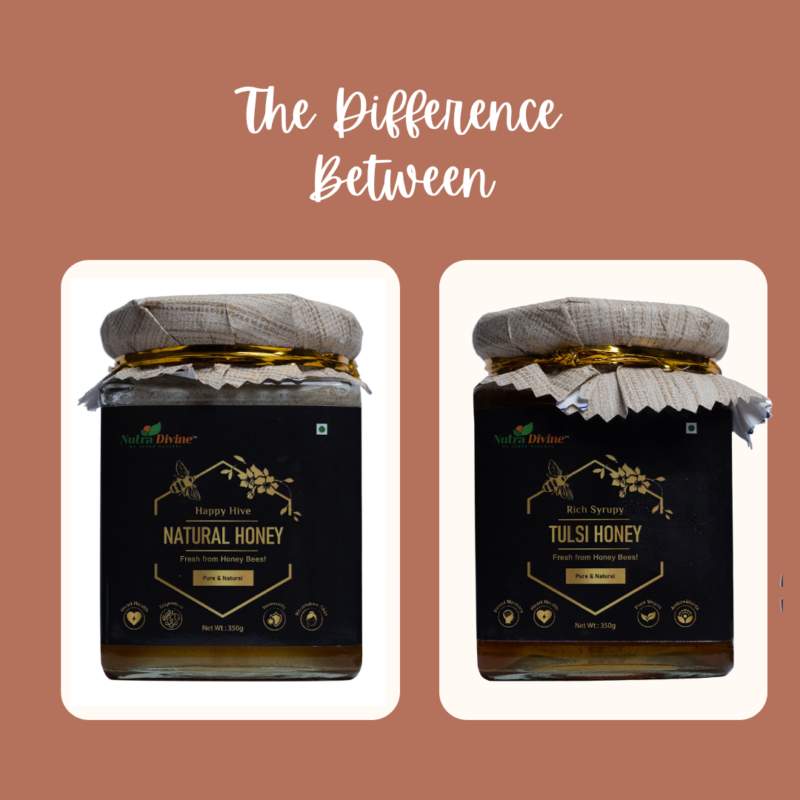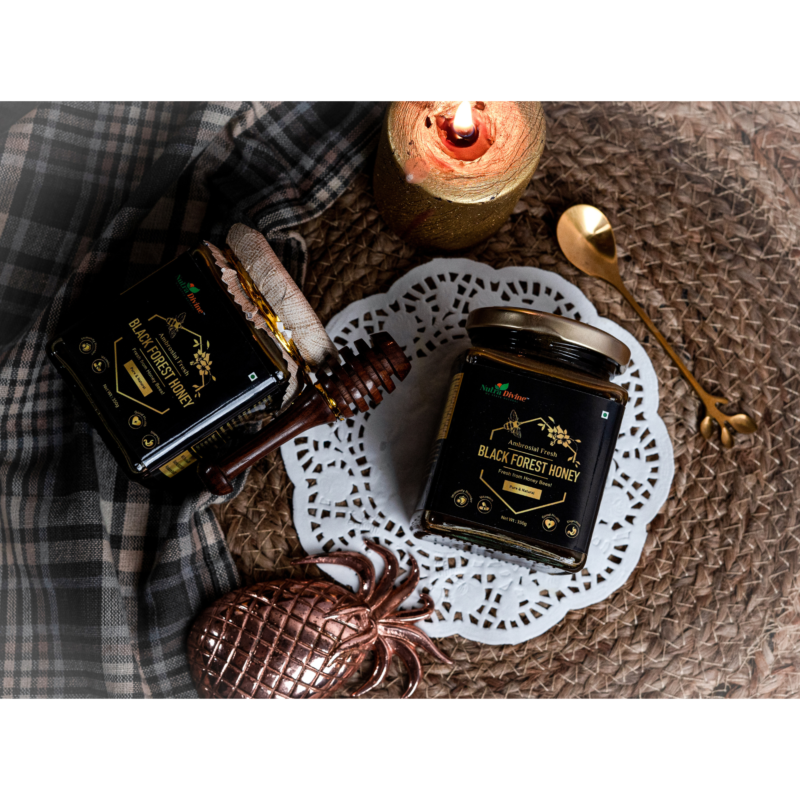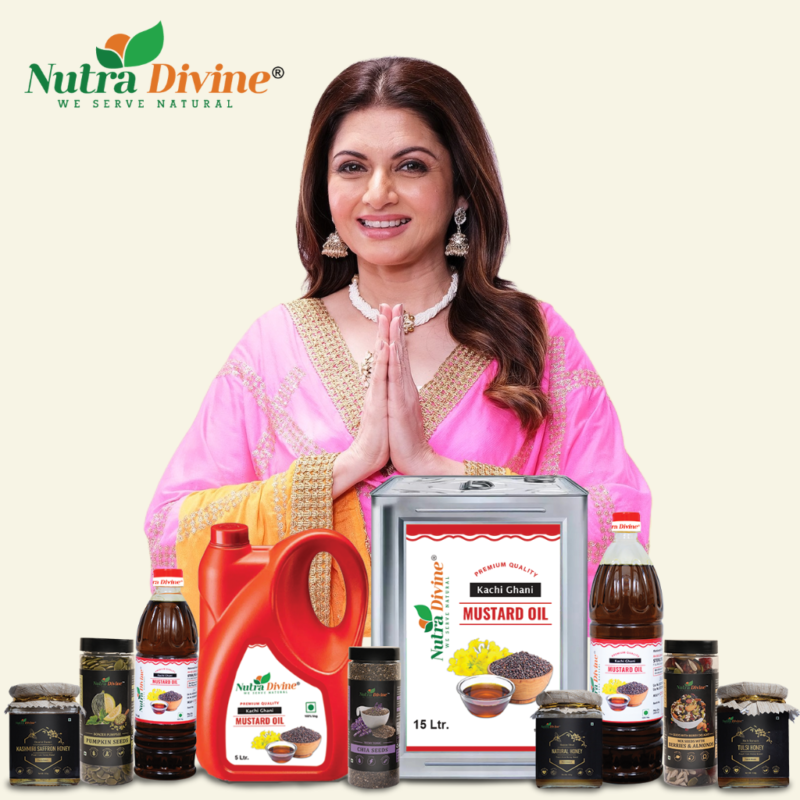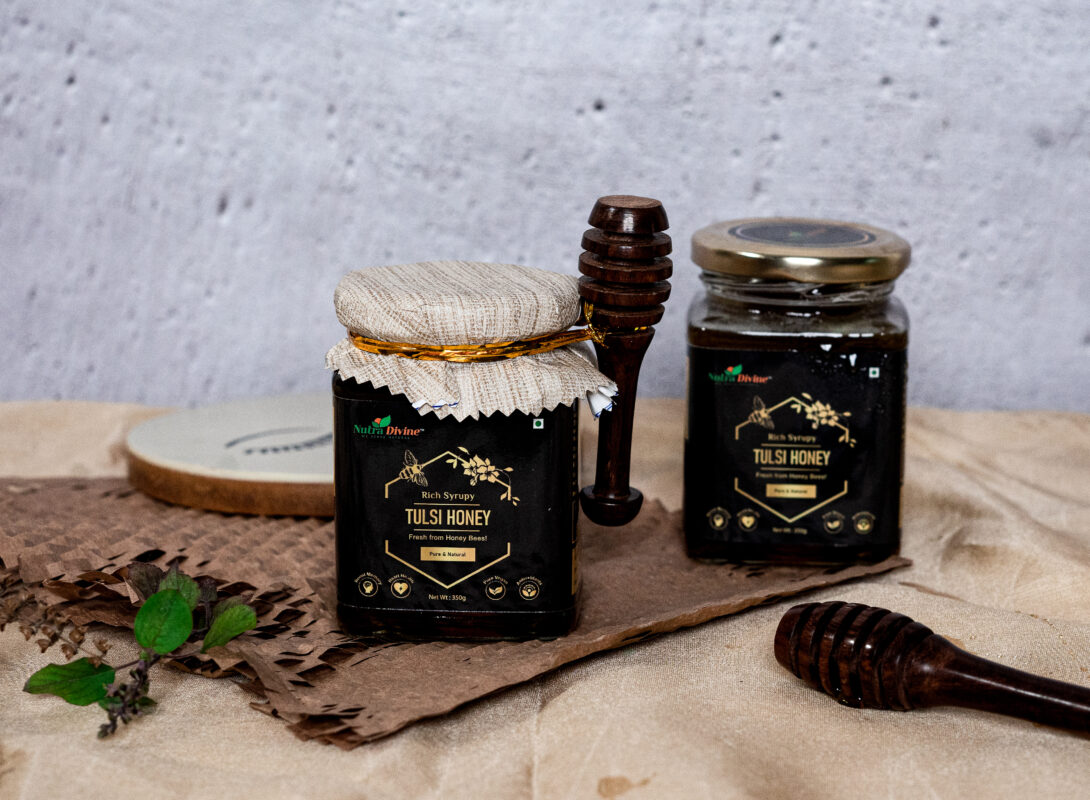8 Common Myths About Honey
Whether you are a fitness freak or a mindful eater, reducing sugar intake is unquestionably the first piece of advice to follow when starting a fitness plan. With an increasing consciousness about fitness and health, people are now switching to healthier alternatives like taking raw honey. But this is not a recent phenomenon.
It has long been known that raw organic honey is beneficial for humans and has several health advantages. People have been using honey in foods for centuries, in one way or another, all throughout the world. Thus, it is no surprise that over the years, the myths about honey also became popular. However, in reality, they are myths and are completely false. Here, you are going to know about the true facts of 8 common myths about Natural Honey:
Myth: Pure honey doesn’t crystallize. There is no crystallization with pure raw honey.
Fact: A few weeks or months after extraction, the majority of Farm honey varieties crystallize, particularly in cold environments. The floral source is the primary factor in the crystallization rate. (Honey from mustard flowers crystallizes in a matter of days, but honey from acacia and jamun flowers may take years to do so). Although the crystallization process can be slowed down by proper filtration, it cannot be stopped unless chemicals and high heat are applied to the pure honey.
Myth: “White foam” indicates that the honey has gone bad.
Fact: All that appears as white “foam” on top of farm honey is actually air. The pure honey contains microscopic air bubbles that escape to the top of the bottle, causing this “foam.” White foam may occasionally be seen on the raw honey if natural honey is sitting for a while. Actually, the presence of foam indicates that the farm honey is fresh and pure. Therefore, avoid throwing away your certified honey the next time you see this!
Myth: All honeys look and taste the same
Fact: To burst this myth, all you need is logic. Where is the source of pure honey? Flowers: that’s right. Are all flowers made equal? Here is your debunker of myths. Honey comes in plenty of varieties, each with its own flavour, colour, and aroma. Honey undergoes changes in coordination with its nectar supply. For example, sunflower honey and eucalyptus honey have completely different tastes and appearances.
Every honey has a unique colour, flavour, sweetness, and thickness. The honey’s colour can also be influenced by the environment and soil. It’s interesting to note that changes in season and location can affect the honey flavour and appearance of the same type of honey.
Myth: Non-flowing and thick honey is the best honey
Fact: The major distinction between thick and thin pure honey is its moisture content, and most other nutritional components remain the same. You already know from above that variations in the honey’s source (nectar) can alter its colour and flavour. In the same way, it influences honey’s viscosity, which is influenced by a number of factors, including nectar sources, temperature, humidity, rainfall, soil, vegetation, flowers, and bee forage. So, it is a myth that 100% pure and natural honey is non-flowing and thick.
Myth: Honey must not be heated
Fact: A common misconception is that heating honey releases chemicals, making it unsafe for consumption. Toxins and poisons are not naturally found in Natural honey, thus, when it is heated, it cannot release them. Remember that when certified honey is exposed to extremely high temperatures, some of its nutritious content may be lost. You can, therefore, add honey to oatmeal or hot tea without worrying about harming yourself.
Myth: Pollen is an impurity found in natural honey.
Fact: To debunk this myth, you need to understand what pollen is. Bees land on flowers to gather nectar, and while they are there, they gather pollen. A ball of pollen from flowers is made up of many little floral pollens. These pollens are carried by bees to their colonies, where they are kept and consumed as food.
All over the world, bee pollen is regarded as a complete health food. Nowadays, bee pollen is also retained in many good quality honey as it has been packed without any filtering or further processing. Therefore, the presence of pollen indicates high hygiene rather than impurities.
Myth: Honey does not get spoiled
Fact: Many archaeological discoveries have confirmed that honey was used by the ancient Egyptians. The discovery of honey jars within the pharaohs’ tombs is noteworthy, but what’s even more amazing is the nectar’s capacity to remain edible for 3,000 years. Thus, one can confirm that honey does not go bad with time. Even though it doesn’t spoil, you still need to be aware that even 100% pure and natural honey could change in flavour, texture, and aroma with time.
It is advised to properly store the honey in a sealed jar to guarantee that these benefits are preserved for as long as possible. This container needs to be kept out of direct sunlight and at room temperature in a dry, non-humid environment.
Myth: Raw honey is highly praised as it is scare
Fact: It’s important to remember that a lot of people still think raw organic honey is rarely sold in the market. Some think that Premium honey is fairly expensive because of its scarcity, so not everyone can afford it.
People continue to hold this misconception regarding raw and processed honey. Actually, the market is flooded with natural farm honey. Also, the cost of raw honey is not so expensive that you cannot purchase it without experiencing financial hardship.
Final Thoughts
The health benefits of consuming certified honey are well-known, and it is undeniable that quality honey is a rich source of antioxidants, minerals, vitamins, and antimicrobial capabilities. However, it is important to buy certified honey from a reputable supplier to get the true benefits of quality honey.
Nutra Divine is one of the leading producers of natural honey in India at affordable rates. All of our best seller honey is thoroughly assessed and found to be in accordance with the guidance and requirements of the Food Safety and Standards Authority of India (FSSAI) and the International Organization of Standardization (ISO). Book your pure and raw honey at our online site now!

